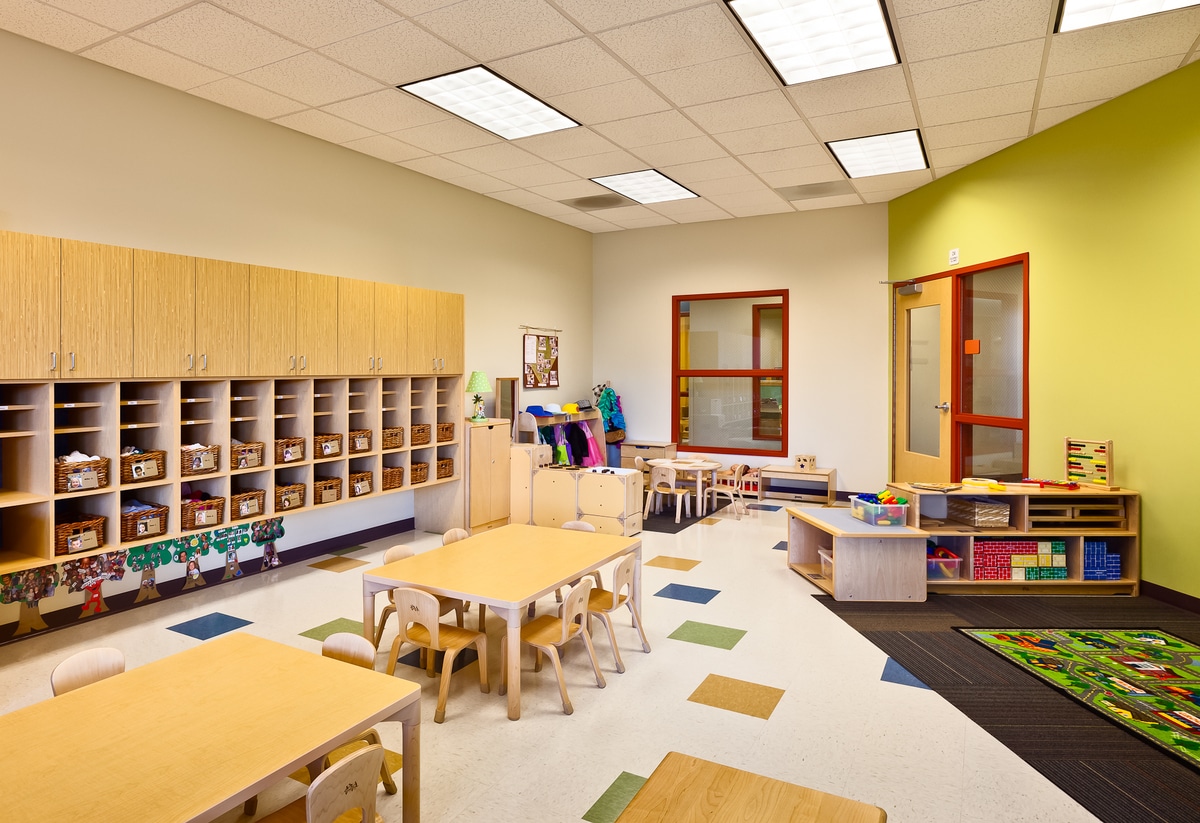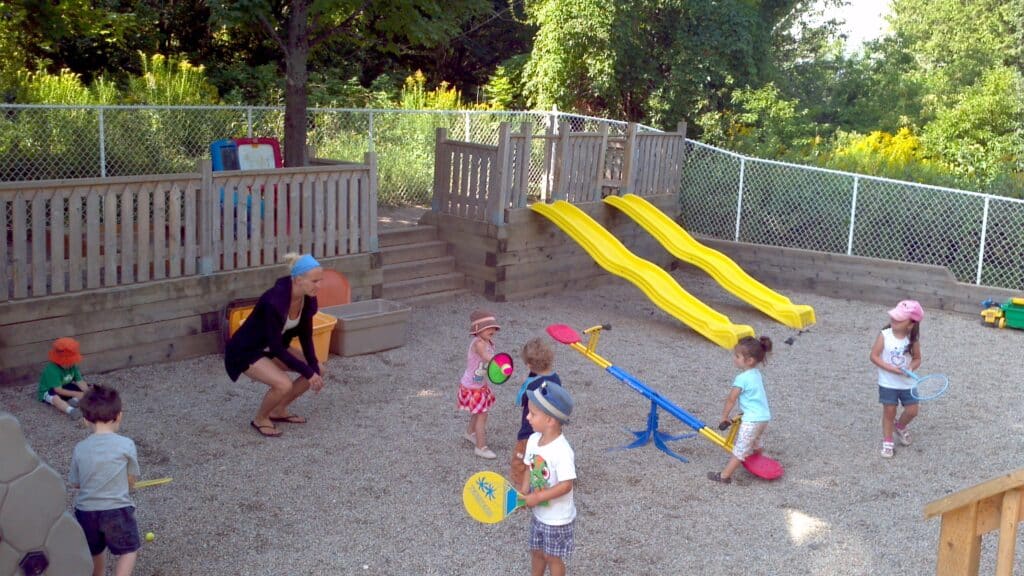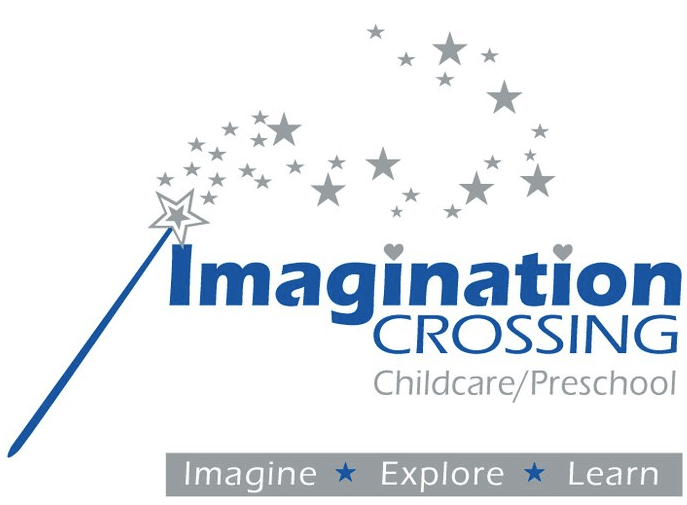Choosing a daycare center for your child is a significant decision that requires careful consideration. A high-quality daycare center plays a crucial role in your child’s early development and sets the stage for a positive learning experience.
In this blog post, we’ll explore 10 key characteristics that distinguish a high-quality daycare center, helping parents make informed decisions and providing a nurturing environment for their little ones.
1. Trained and Caring Staff
- Qualified Caregivers: A high-quality daycare center employs caregivers with appropriate qualifications in early childhood education or related fields. Trained staff members understand the developmental needs of children and provide a caring and supportive environment.
- Low Staff-to-Child Ratio: Maintaining a low staff-to-child ratio ensures that each child receives personalized attention. This allows caregivers to build meaningful relationships with the children and meet their individual needs.
2. Safe and Clean Environment
- Safety Measures: A high-quality daycare prioritizes the safety of its environment. This includes childproofing measures, secure entrances, and adherence to safety regulations. Regular safety drills are conducted to prepare staff and children for emergencies.
- Clean and Sanitary Conditions: Cleanliness is essential for a healthy learning environment. A reputable daycare center maintains high standards of cleanliness, ensuring that toys, surfaces, and play areas are regularly sanitized.

3. Engaging Curriculum and Activities
- Age-Appropriate Curriculum: A high-quality daycare center offers a well-rounded, age-appropriate curriculum that stimulates cognitive, social, and physical development. Activities are designed to be engaging, educational, and aligned with developmental milestones.
- Variety of Learning Materials: The center provides a diverse range of learning materials, including books, art supplies, toys, and educational games. This variety encourages exploration and supports different learning styles.
4. Effective Communication with Parents
- Open and Transparent Communication: A quality daycare maintains open lines of communication with parents. Regular updates, newsletters, and scheduled parent-teacher meetings keep parents informed about their child’s progress, activities, and any concerns.
- Accessibility: The daycare center is accessible to parents during operating hours, and caregivers are readily available to address questions or discuss any matters related to a child’s well-being.
5. Healthy Nutrition Practices
- Balanced Meal Plans: High-quality daycares prioritize nutrition by offering well-balanced meals and snacks. Menus are designed to meet nutritional requirements and accommodate dietary restrictions or preferences.
- Hydration Practices: Adequate hydration is crucial for children’s well-being. Daycare centers ensure that water is readily available, and caregivers encourage healthy drinking habits.
6. Positive and Inclusive Environment
- Inclusive Policies: High-quality daycares embrace diversity and implement inclusive policies. They create an environment where children from various backgrounds feel welcome, respected, and celebrated.
- Positive Behavior Management: Effective behavior management techniques focus on positive reinforcement and encouragement. Caregivers guide children in developing social skills and conflict resolution, fostering a positive and supportive atmosphere.
7. Outdoor Play Spaces
- Safe and Stimulating Playgrounds: Daycare centers with outdoor play spaces provide children with opportunities for physical activity and fresh air. Playgrounds are designed with age-appropriate equipment and safety measures.
- Supervised Outdoor Activities: Caregivers actively supervise outdoor playtime, ensuring that children engage in activities that promote gross motor skills and social interaction.

8. Continuous Professional Development
- Staff Training Opportunities: A commitment to continuous professional development is a hallmark of a high-quality daycare. Staff members are encouraged to participate in ongoing training and education to stay informed about the latest practices in early childhood education.
- Updated Certifications: Caregivers maintain updated certifications in areas such as CPR, first aid, and other relevant training to ensure the safety and well-being of the children.
9. Regular Health Checkups
- Health Monitoring: Daycare centers prioritize the health of each child by conducting regular health checkups. This includes monitoring for signs of illness, addressing any health concerns promptly, and keeping parents informed about their child’s well-being.
- Immunization Requirements: High-quality daycares adhere to immunization requirements to create a healthy and protected environment for all children in their care.
10. Parental Involvement Opportunities
- Parental Engagement Programs: A quality daycare actively encourages parental involvement. Programs such as parent-teacher associations, workshops, and events foster a sense of community and allow parents to actively participate in their child’s early education.
- Observation Opportunities: Parents are provided with opportunities to observe classroom activities, engage in volunteer opportunities, and actively participate in their child’s learning journey.
Selecting a daycare center for your child is a crucial decision that involves careful consideration of various factors. A high-quality daycare center encompasses these 10 characteristics, creating an environment where children can thrive, learn, and build the foundation for a positive educational experience.
By prioritizing safety, communication, and a nurturing atmosphere, parents can entrust their children to a daycare that truly values their well-being and development.
